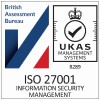The volume of headlines discussing the increased risk or actuality of insurance fraud emerging from the tightening economic conditions has started to accelerate. The incidence of insurance fraud correlates with a number of different factors, but financially strained times for policyholders must vie with any other as one of the premier drivers.
Those conditions are unquestionably with us now, and businesses and consumers alike share in the economic hardship deriving from a number of macro-economic factors aligning to present an arguably perfect storm. When economic conditions become so acute that decisions about hygiene factors of domestic or commercial existence are in play, the temptation to regard insurance claim funds as a possible source of relief becomes greater.
Insurance is sometimes spoken of as a victimless crime; it is anything but. A wide array of stakeholders are affected, with premium paying policyholders the ultimate bearers of the cost of fraud that goes unseen. Insurers have a commercial, fiscal and moral obligation to address fraud head on – and a mantra of ‘Deter, Detect, Defeat’ might best describe how focus must be relentlessly applied to meet those obligations.
If attempted insurance fraud is seen early and appropriate steps taken, the prospect of a satisfactory outcome is much improved; where individuals might be tempted into circumstance driven opportunistic behaviour, an early realisation that vigorous scrutiny will often deter. 360Globalnet's digital claims technology is usually configured with a 'withdraw claim' offer that sits alongside robust digital methods of designing-out fraud – particularly with use of live video which is impossible to edit unlike pictures downloaded from the internet! When customers feel the likelihood of detection increasing, as many as 30% choose to withdraw their opportunistic claim.
Where more sophisticated and organised behaviour is at play, early response action is equally important, both to interdict ongoing activity (such as continuing car hire) and also to enable contemporary evidence gathering. In either scenario, where early detection is dependent upon scrutiny by capable personnel, an obvious limitation exists - even with the best application of training, knowledge sharing and desktop aides, there is only so much that can be achieved.
The answer lies in detecting the risk factors present at portfolio level by the screening and application of rules-based counter-fraud intelligence of the relevant data. At this point, many counter-fraud detection strategies fail by focusing only on the structured data presented to the business – this may leave up to 80% of available data outside scrutiny as it arrives in unstructured formats (emails, letters, expert reports, images, video etc) which often contains the critical clues that highlight attempted fraudulent behaviour.
360Globalnet’s unstructured data and anti-fraud technology offers a solution to this by ingesting all unstructured data, turning it searchable and capable of analysis. Additionally, the technology joins all internal, third party and industry data sources, delivering a universal view of 100% of your business’ data. It robotically reads all the documentation enabling the automation of many of the manual processes and decision-based strategies used to identify suspected fraud.
Detect, Deter Defeat can only be applied to maximum effect where unstructured data is managed and understood. If you would like to discuss how 360Globalnet can help your business successfully navigate the increasing risks of fraud, get in touch today.
Additional links you may find interesting:
Learn more about combatting fraud using unstructured data here
